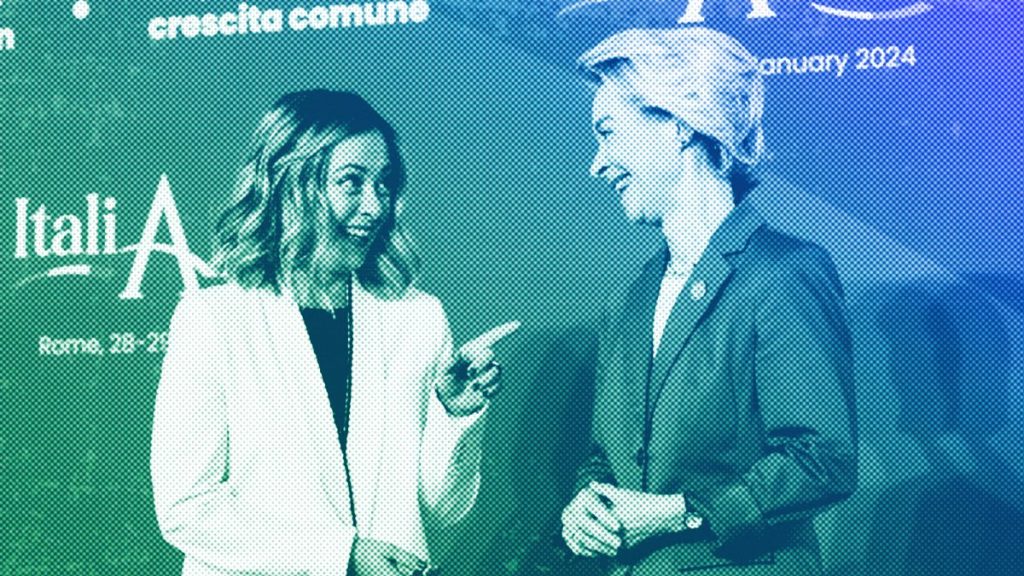European Commission President Ursula von der Leyen is facing a series of challenges that are significantly impacting her political campaign. From controversies surrounding appointments to her diminishing influence within the EU and her own party, the Christian Democratic Union of Germany, von der Leyen is struggling to secure her place in the upcoming MEP vote. Despite this, she seems to be embracing unconventional strategies to regain popularity, including aligning with far-right groups.
Von der Leyen’s recent rebranding as “Ursula 2024” at a Politico election debate in Maastricht has raised eyebrows, especially with her suggestion that the grand coalition between the EPP and S&D in the European Parliament might crumble to make way for an alliance with the far-right. This potential alignment with groups like the European Conservatives and Reformists group (ECR) marks a significant shift in European politics, with far-right parties gaining more influence.
Italian PM Giorgia Meloni is a key figure in this shift, as she assumes the presidency of ECR and expands her influence in Brussels. Meloni’s ideologies of authoritarian tendencies are finding support within the EU, with the potential for significant policy influence across the continent. The EU’s endorsement of collaboration among these rogue elements is concerning and has led to a legitimate backlash from critics who fear the erosion of democracy within the bloc.
The impending coalition between the EPP and ECR in the European Parliament signals a disturbing shift towards the right, which is further exacerbated by the mainstreaming of far-right ideologies and the normalization of corruption within the EU. Von der Leyen’s willingness to embrace these far-right elements in a bid to secure her political survival is raising alarm bells, as it comes at a significant cost to the values and principles the EU stands for.
Despite von der Leyen’s previous claims of never collaborating with the far-right, her recent actions suggest otherwise, as she edges closer towards aligning with groups that exhibit xenophobic attitudes, anti-LGBTQ stances, and a revival of neo-Fascist ideologies. The alliance between Meloni’s allies and the EPP paints a grim picture of European policymaking, emphasizing a shift towards authoritarianism and away from democratic principles.
In conclusion, von der Leyen’s decision to align with far-right groups in a bid to secure her political survival poses a significant threat to Europe’s democratic values and principles. By embracing these elements, she risks steering Europe down a dangerous path of authoritarianism and xenophobia, leading to potential policy challenges and a loss of credibility within the EU. It remains to be seen what the consequences of these alignments will be, but the potential for significant backlash from those who value democracy and human rights is undeniable.













